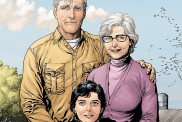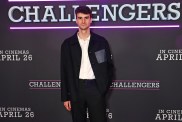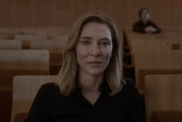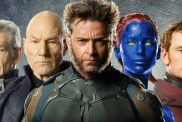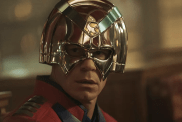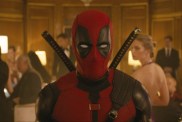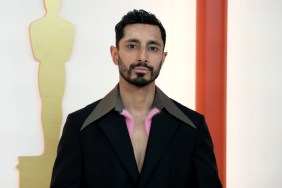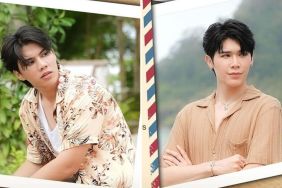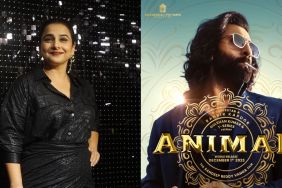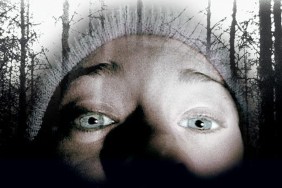ComingSoon Editor-in-Chief Tyler Treese spoke with Cloverfield and The Batman director Matt Reeves about found footage horror and meeting Steven Spielberg. Cloverfield is receiving a limited edition 15th-anniversary 4K UHD and Blu-ray Steelbook release that is out this week.
Tyler Treese: Cloverfield really stood the test of time and I think one of the aspects that makes the film so great is how you handle found footage. What we see in the film as a viewer is just as important as what’s off camera and what we don’t see. Can you speak to your approach in using that limited perspective to your advantage?
Matt Reeves: Yeah, I mean it’s interesting because what you’re describing is exactly the approach that I tried to take because one of the things I tried to do in researching … obviously we knew we wanted to do this kind of Godzilla-like movie from the point of view of the crowds running on the ground, but that idea of the limited perspective and how that drives anxiety and horror … obviously there are many movies have done that, but I was looking at a lot of documentaries and there was some footage that we saw of a documentary of somebody who was filming.
They had a Handycam — it was a soldier in Iraq and they were in a tent and there were incoming bombs and they suddenly got under their cot and all you could see was … you could see one guy’s boot and you could see — it was so terrifying. It was just the sound and that limited perspective.
And there’s something about the idea of withholding the full view that puts a tremendous amount of anxiety in the viewer. The other thing was, I think early on, I remember J.J. saying, “You know what’s so cool about this idea? You can always cut.” And I was like, “No, actually you can’t always cut because you have to have a reason for the cut, or the audience going to go, ‘Well why did he cut there?'” So that meant it made the movie a lot harder because not only were we limited perspective but there ended up being more long, continuous takes than maybe what had originally been envisioned, because I kept thinking, “Well wait, we have to think about every single time the camera … either the camera falls and so it goes off or he finally feels like this moment is over so he turns it off.”
Or we had to look at all that stuff. But it really was about looking at a lot of — I mean one of the crazy things, like when we shot the party scene, we had Josh Sheppard, who’s done a lot of storyboarding for me since — actually, he’s been on every movie I’ve done since — he put together this thing where he found this party on YouTube and these guys were filming themselves. [The] guy was having a going away party and so on that, there’s actually a line from it where this guy says, he goes, “What are you going to do man?” He goes, “I don’t know man. You’re my main dude.” And we literally [were] going, “Oh, that’s so cool!”
But there was something about the vibe of people really filming each other and what you did see, what was off camera, and just trying to make it somehow feel authentic. Anyway, the horror of it and the developing of that part … I think that’s always the thing is what you can’t see is always scarier than what you can see because your brain fills in the worst thing you could imagine. So going into the subways and having to turn on the night vision and those moments where, in the dark, you’re going, “Wait, wait, wait, there’s some … I’m hearing sounds,” all of that kind of stuff gets into that almost reptilian part of our brains and goes like, “Uh oh, something bad is about to happen.”
Yeah, it is definitely that Jaws mentality of less is more. I read that Spielberg even had some advice for the film. Can you speak to your interactions with him?
Spielberg didn’t come while we were shooting, but what he did do was he watched the movie while we were finishing it and then he gave us some advice about the very last moment with the alarms that were playing — the idea of the citywide alarms as we were reaching that kind of … I think he almost described it as that “Strangelove moment” where you’re realizing that things are going to blow up and that kind of thing. So he had an influence, really, on the last moment of the movie when we were mixing it. He had some great sound ideas that we actually did, which was really fun. It was fun. It was really cool.
He talked to me afterwards because one day, Bryan Burk called me from the set of Star Trek, where he was sitting down with J.J. And the writers and Bryan and he was saying, “Oh hey, where’s the director of Cloverfield? I want to talk to him.” So Bryan was like, “You better come over to Paramount right now. Spielberg is asking where you are.” I was like, “Oh! Okay!” So I went over there and I’m just sitting there and then he turned to me and after he’s talking, he was giving them a lot of input on the script and stuff and he was really lovely. Then he turned to me, he goes, “Wait, so you directed Cloverfield?” And I said, “Yeah.” He goes, “You scared the hell out of me.” And I was like, “Oh.” That was awesome. There was no higher compliment I could get than that. I scared Steven Spielberg. That was cool.
Cloverfield entered the public consciousness so much and I feel like nothing quite reflects that like South Park doing a two-part parody special. Have you seen those episodes and did you enjoy that spoof?
You know what? I have not seen that, but now I have to watch that! Here’s the thing: I remember there were so many different spoofs, but I don’t — honestly that’s the first I know of it, so I will absolutely check that out. That sounds amazing.
Cloverfield was really your breakthrough as a director. What was the biggest lesson you learned from its production, be it in business or creatively?
Gosh … I think what it was for me was Cloverfield was a breakthrough for me and understanding the ways in which you could do genre and still do personal filmmaking. That movie was so much about … in order to figure out how to make it, I really had to explore. It’s almost therapeutic, like my own anxiety. So when you talk about that idea of the restricted view and what things feel like, there was something very therapeutic in the idea of having been through — everybody was — when we’re after 9/11 and the idea of of feeling like, “Gosh, we’re in a moment of such uncertainty,” and the idea of a moment that could spiral in a way that would be growing in sort of import and impact without really fully understanding what we’re at the center of and that fear … first of all, I’m kind of a fearful person anyway.
I’ve realized that probably in that movie was the first thing where I really put so much of my fear into what we’re doing and I’ve kind of done it ever since. So I think it was really this idea that it unlocked in me, because I’d always loved genre films, but to understand what it could unlock in terms of storytelling. Where you could be exploring things through the metaphors of what you’re doing that are real world, but doing it through fantasy or doing it through something that has a kind of genre element and finding that intersection between something that’s a kind of pop sensibility but also a personal sensibility. And I think that, for me, really came from Cloverfield.

